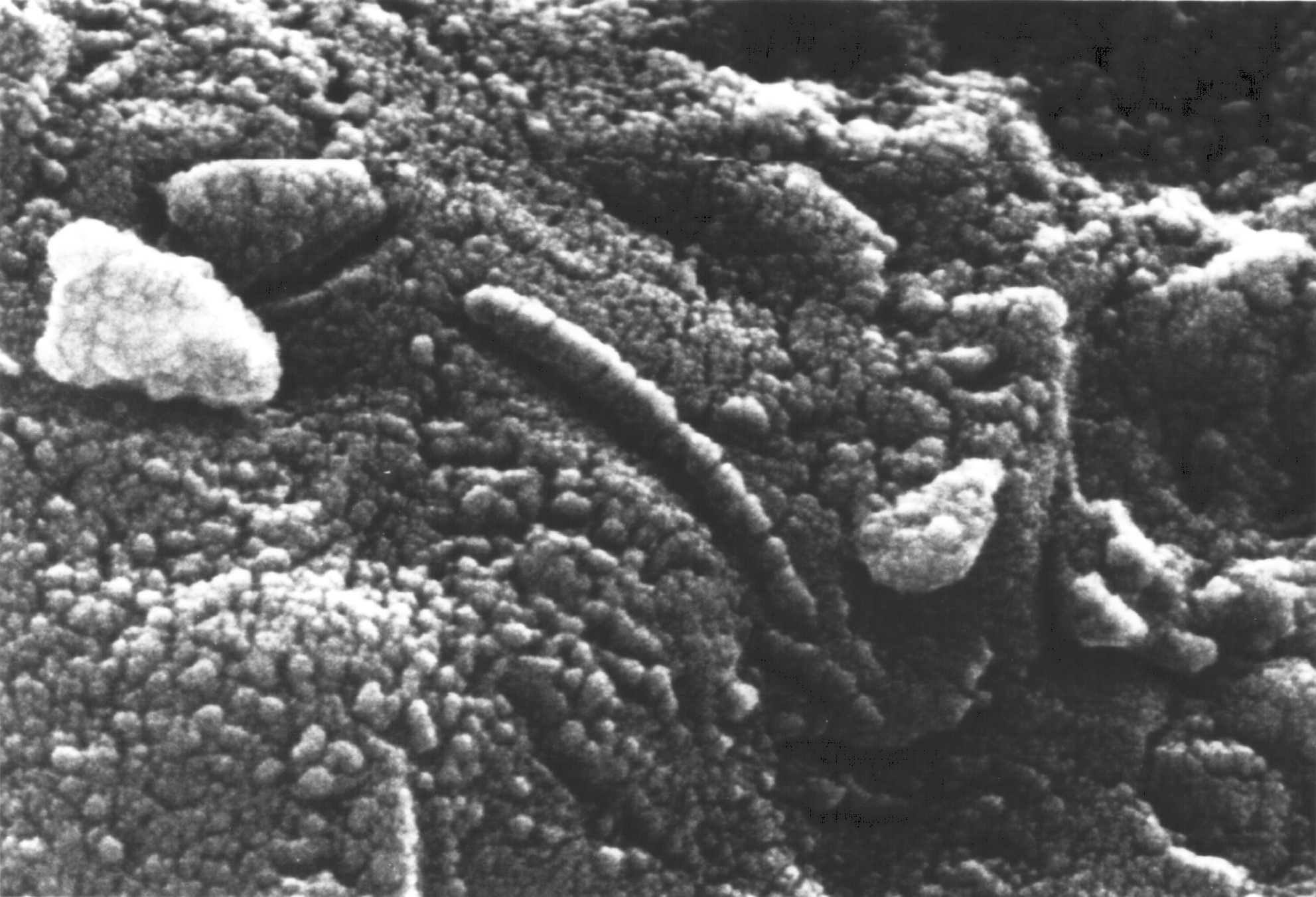It's a question we've asked before, and we'll probably ask again. What does humanity do with Mars if we happen to discover native Martian life? I think it's worthwhile to mention it now, because Mars has been on the news as of late. President Obama recently
stated that it should be a goal for the United States to reach Mars by 2030, and Elon Musk wants to
colonize Mars, sooner rather than later. Of course, that colonization plan is wildly ambitious and almost certainly completely
unrealistic, but the fact remains that very big people are very excited about Mars.
 |
| This is probably not Martian life. But what if there is Martian life? |
That brings us to an article recently
published in
Astrobiology (available for
free until November 15) which reevaluates data collected by the Viking space probes. There is a possibility that the results for the experiment meant to detect life were actually positive, not negative. This is not the consensus view in the scientific community, of course, but there is an apparent case for argument. Also, the study authors argue, even if the Viking results are actually negative, enough evidence has stacked up over the years that the possibility of native Martian life cannot be ignored.
And this is where that big question comes in again. What do we do with Mars if we find life there? Brazenly moving in regardless seems like the wrong answer. Earth microbes are not currently adapted to life on Mars, but there's no reason to assume they wouldn't, or couldn't, make life work there. And once they moved in, it would almost certainly mean the extermination of native Martian life. Sure, the Martian microbes might give a few good punches back, maybe cause an illness or two, but why would Martian life be any less susceptible to Earth germ warfare then the American Indians were when the Europeans moved in? Sure, they gave the Europeans syphilis, which killed a few million, but an STD could not possibly do as much damage as smallpox or measles did to the native American population. What the Europeans did in the Americas is generally not viewed as a good thing. We killed millions and drove cultures either to extinction, or broke them. I really don't think that we want to do the same thing on Mars.
I'm sure we'll hear the argument that Martian life is surely primitive compared to Earth life, and that colonizing Mars is more important for the survival of the human race. Maybe those people will say that Martian life will be maintained in specific areas set aside for it, places where people won't go. Ignoring the obvious historical parallels, that's dangerous thinking. Where does the line stop then? How advanced does the life have to be before we risk contaminating the environment with Earth life? Bacteria? Multicellular? Big enough to see? There's a risk setting that line anywhere other then "If there's life there, humans won't go there." What if we decide we don't like where we set the line, and decide to move it further down? It would probably be best not to give ourselves the chance to equivocate and make a blanket rule: if a planet or moon has native life, we won't colonize there.
If only it were that simple. I have a hard time believing the ethical concerns of a few people over some bacteria is going to stop the colonization of Mars, or any place, really. Let's go a couple hundred years down the road, to a hypothetical first interstellar mission. We've finally done it, we've finally found a planet that's just like Earth. Green plants, blue skies, pleasant temperatures, exotic animal life, the works. There is no way we don't plop ourselves down and make that planet a new home. If we can risk the ecosystem of this planet, why can't we do the same for any world? And who knows, maybe in the future we'll come up with some crazy technology that will prevent the cross-contamination of microbes. The facts are these: humanity can't stay on Earth forever, and I doubt our descendants are going to want to spend their lives on cold, dead rocks or floating through space in metal cans. Planet colonization is in our future, and we might as well get to it sooner rather than later.
We haven't really gotten anywhere, have we? I guess it wouldn't be an ethical dilemma if some guy on the internet could solve it in a few paragraphs. I guess it comes down to whether or not humanity is comfortable with playing god with lesser species. We always have been in the past, and I don't see that changing much. A lot of people are concerned about what global warming is going to do to the planet, but I wonder how much of that is actual concern for the planet, and not self-preservation. Let's face it, we're selfish. There's nothing wrong with that, all life works to preserve itself, even at the cost of other species. I guess it really boils down to how you think about humanity. If you think about the human race as just another species fighting for survival, it's a no-brainer. If you think about the human race as more than that, if you think we have greater responsibilities than our own survival, well, that's a no-brainer as well.
Geez, this got pretty heavy. I'll try to keep things a little less dense next time.



